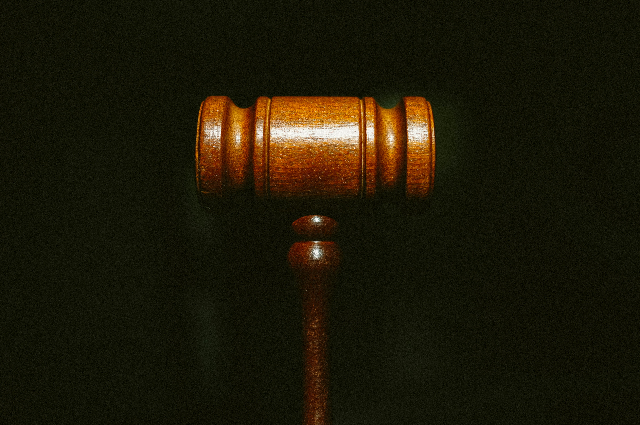
Chapter 1: The Genesis of a Calling
Riyas Kechery, a dedicated law student from Kerala, always knew his calling lay beyond the conventional boundaries of legal practice. During his second year at Markaz Law College integrated by Calicut University, Kerala, he stumbled upon the opportunity to intern with the Special Public Prosecutor in the Protection of Children from Sexual Offences (POCSO) Act. This was more than just an internship; it was a chance to make a real difference in the lives of vulnerable children.
Chapter 2: The Intention Program
Riyas's selection into the intention program was the result of rigorous scrutiny. The program was designed for law students who demonstrated exceptional legal acumen, a commitment to social justice, and an unwavering sense of empathy. It promised intense training, exposure to real courtroom scenarios, and the mentorship of seasoned legal professionals.
Chapter 3: The First Day
The Kerala summer was at its peak when Riyas stepped into the bustling corridors of the District Court. He was greeted by Advocate AK Binoy, the Special Public Prosecutor with decades of experience in handling POCSO cases. His stern demeanor softened slightly as he welcomed Riyas, sensing his nervous excitement.
"Welcome, Riyas. Hime, we don't just learn the law; we live it. Are you ready?" Anil asked.
Riyas nodded, his heart racing. This was the beginning of an unforgettable journey.
Chapter 4: The Case of the Missing Evidence
Riyas's first assignment was to assist in a high-profile case involving the abuse of a minor. The case hinged on a critical piece of evidence that had mysteriously disappeared. Riyas, determined to prove his worth, meticulously reviewed the case files, interviewing witnesses and scrutinizing every detail.
One evening, as she pored over the documents in the dimly lit office, Riyas noticed an inconsistency in the timeline provided by one of the key witnesses. His pulse quickened as he realized this could lead to the missing evidence.
Chapter 5: Thrilling Communications
The next day, Riyas presented his findings to Binoy. He listened intently, his eyes narrowing as he laid out his theory.
"This is a significant lead, Riyas. But we need more than just a theory; we need proof. Let us see if you can find it," Binoy challenged.
Riyas knew what was at stake. He spent the next few days connecting dots, cross-referencing witness statements, and even visiting the crime scene. His persistence paid off when he discovered a hidden camera footage that captured the critical moment. He rushed back to the office, his hands trembling with excitement as he handed the evidence to Binoy.
Chapter 6: The Courtroom Drama
Armed with the newfound evidence, Binoy and Riyas prepared for the courtroom battle. The defence attorney was formidable, but Binoy's experience and Riyas's meticulous research created a strong case. The courtroom was packed, the air thick with tension as the trial unfolded.
Riyas watched in awe as Binoy skilfully presented the evidence, dismantling the defence’s arguments. When it was Riyas's turn to testify about his findings, he spoke with clarity and conviction. The judge listened attentively, and Riyas felt the weight of justice in every word he uttered.
Chapter 7: The Verdict
The courtroom fell silent as the judge prepared to deliver the verdict. Riyas's heart pounded in his chest, his mind racing through every possible outcome. Finally, the judge's voice broke the silence.
"Based on the evidence presented and the compelling arguments made, I find the accused guilty of the charges under the POCSO Act."
Riyas felt a surge of relief and triumph. The hard work had paid off, and justice had been served.
Chapter 8: Reflections and Realizations
The experience was transformative for Riyas. He had not only gained invaluable legal knowledge but had also witnessed the profound impact of the law on people's lives. He realized the importance of perseverance, meticulous research, and, most importantly, empathy in the pursuit of justice.
Binoy, impressed by Riyas 's dedication and skills, offered him a permanent position as a junior lawyer upon his graduation. He saw in him the potential to be a formidable advocate for justice, especially for those who could not fight for themselves.
Chapter 9: A Future Foreseen
Riyas accepted the offer with gratitude, knowing that his journey was just beginning. He continued to work on POCSO cases, each one reaffirming his commitment to protecting the innocent and holding the guilty accountable. His reputation grew, and he became a beacon of hope for many.
The intention program had not only shaped Riyas's career but had also ingrained in him a deep sense of responsibility toward society. He knew that every case he handled was a step towards creating a safer world for children.
Epilogue: Legacy of an Advocate
Years later, Riyas stood in a packed auditorium, addressing a new batch of law students. He spoke of his journey, the challenges, and the triumphs. He urged them to approach the law with the same passion and dedication.
"Remember, the law is not just a profession; it's a tool to shape society. Use it wisely, and always fight for justice," he concluded, his voice echoing with conviction.
As he investigated the eager faces of the students, Riyas saw reflections of his younger self. He knew that the legacy of an advocate was not just in winning cases, but in inspiring others to carry the torch of justice forward.
